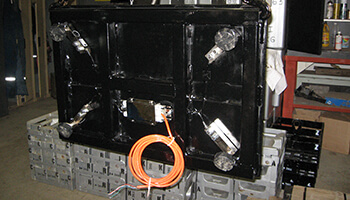Does your business depend on weighing systems to run your day to day operations? With inventory season just around the corner, the importance of ensuring your equipment is up to date and in proper working form is greater than ever. Even with regular maintenance and upkeep in place, weigh scales that are used constantly may need additional inspection and care to guarantee consistent results you can count on. If it’s been a while since your last tune-up and you’ve started to notice a few issues here and there, it may be time to have a professional take a closer look. Read on to learn tell-tale signs that you need an inspection ASAP below.
Inaccurate Readings
If your scale is giving you readings that are inconsistent or simply don’t make sense, it’s an obvious sign that something is amiss. Sturdy and dependable units can bow to the demand of heavy loads over time, and often give telltale signs of internal damage by giving results that vary from consistent, proven past numbers. To confirm whether or not you’re dealing with a direct issue, test your items on another scale that is giving consistent readings; if the result lines up with what you should be getting, this is usually a giveaway that the scale in question needs service.
Unstable Readings
While unstable readings may sound the same as inaccurate readings (that assumption is partially correct, after all), the issue referred to here is slightly different. Unstable readings refers to a scale wavering between numbers when weighing specific items, or, in progressed cases, with every load. Whether you’re seeing results that waver with a needle or digital display, this is a clear indication something is up and your scales need to be evaluated.
Visible Damage
As we mentioned above, even with the most meticulous of care, the highest quality scales will eventually begin to show their age, especially if heavy loads are part of their day to day usage. If your environment and inventory are particularly demanding (cold weather, corrosive materials being weighed, etc.), you need to remember to keep an eye for signs of rust and corrosion. If you notice any spots beginning to form, it’s best to have your equipment looked at sooner than later. Failure to do so can lead to poor results, as well as safety hazards for everyone involved.
Scale Experienced “Shock Loading”
Heavy duty industrial models like crane scales are designed to stand up to demanding loads and substantial abuse, but on occasion, improper loading can lead to a weighing problem known as “shock loading” where the weigh scales are overloaded and can shut down. The signs of shock loading can be fairly obvious to spot even immediate, with displays glitching and failing to reset, even after re-zeroing. If you know such an incident occurred and your weigh cycles seem to be lacking in accuracy, it’s time to let an expert take a look.
Are your scales in need of inspection or calibration? Accurate Scale can help. Contact us today to learn more!

